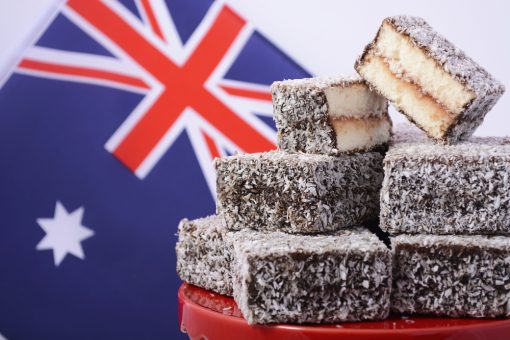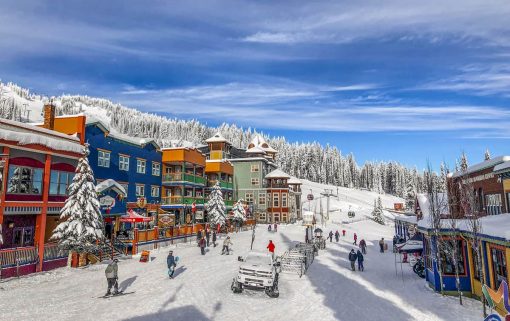Every year Stan Stalnaker and his team of global citizens gather their experiences around the world and summarize in this, their now famous Hub Culture’s Zeitgeist Ranking, the cities that for a variety of reasons seem to be at the center of the Universe. An elusive classification that doesn’t get impressed with economic power, flawless life-styles or centuries-old traditions, is mostly based on heuristics that related to the needs and desires of global citizens hoping from hub to hub networking their way into urban authorities. This is their veredict:
- Los Angeles, United States
- Berlin, Germany
- Mumbai, India
- Beijing, China
- Tokyo, Japan
- London, United Kingdom
- Buenos Aires, Argentina
- Dubai, U.A.E.
- New York, United States
- Hong Kong, China
- Istanbul, Turkey
- San Francisco, United States
- Sao Paolo, Brasil
- Shanghai, China
- Moscow, Russia
- Madrid, Spain
- Singapore, Singapore
- Sydney, Australia
- Mexico City, Mexico
- Vancouver, Canada
In some ways, the doom and gloom LA has experienced recently has presaged the general red alerts now being felt elsewhere – from environmental crisis to economic lapse, LA seems to have arrived in the shits just before everyone else.
As the cutting edge vibe in London wanes, Berlin continues to draw the young and the restless, and its ties to a resurgent East (i.e. Moscow, Warsaw) are really showing dividends.
Even as Mumbai gridlock threatens to become a 24/7 state of affairs, India in general and Mumbai in particular continue their assault on the global consciousness. It’s hard to argue against Mumbai, especially with so many new innovations popping up here. That includes the arrival of the TATA Nano, which will soon change the economics of transport across the developing world. Add in booming hotels, real estate and a stronger rupee, and Mumbai holds the course.
2008 is Beijing’s year, and not just because of the Olympics. The financial meltdown occurring in other capitals has cast Beijing in a new light as the Chinese continue to show fiscal reserve while strengthening their own position.
Tokyo is steaming! A combination of low prices, an awakening in the real estate sector, smart yen plays and new innovation in the music scene have breathed new life into Asia’s sleeping Godzilla.
Overpriced by any measure and past the crest in nightlife, London seems to have dulled in line with the smaller bonuses being handed out in the City.
BA has problems, but Argentina’s cheap prices are attracting legions of globalized people, especially financial types looking to make investments in everything from wine to hotels.
Global investment capability and a city awash in cash and construction make Dubai one of the world’s few economic bright spots in 2008.
While not great for the locals, that makes for a wonderful hub moment in the city: a bargain for visitors and a place more remarkably open and international than it has been for a long time.
The scene remains predictable, but predictably fun, and Hong Kong’s leadership in fashion and Asian pop culture is steady – even if everyone is increasingly obsessed with Korean daytime TV.
Istanbul has dropped from last year – not because it is any less hot, just because other locations are now taking up more mind space. As the Islam threat feels like its cooling Istanbul continues to set the leadership example for the region while integrating ever closer to Europe.
San Francisco continues to punch above its population weight, mostly because it continues to reinvent itself. From the technology space it is now leading the global green charge, spearheading investments and opportunity in the sector.
Brazil’s macro success is manifesting in booming design, nightlife, and real estate in South America’s largest city with a young, increasingly educated, party population.
The city has recently blossomed and is now genuinely a fun place to live, filled with interesting people, a cosmo scene and true cultural innovation.
Putin was named TIME’s Man of the Year for a reason: Moscow continues to grow its sphere of global influence, and instead of saber rattling the new vogue is suitcase rattling: as in suitcases of cash.
Sunny Madrid is benefiting from stability and language. As South America continues to do well, Madrid benefits back in Europe, and a continuing influx of Northern Europeans adds to the cultural mix. Add in some of the best nightlfe in Europe, a hot art scene and lower living prices than other regional hubs, and Madrid looks ever more enticing.
Whether stepping up to the financial plate globally or announcing another outlandish designer building project, the tiny city state continues innovation at the macro level, providing economic security and iced whipped chai for its people in an ever more turbulent world.
Sydney is the terrycloth towel of urban hubs – rich, beautiful and soft enough to feel comfortable. In a land aloft in buoyant commodity prices and closer ties with the economic engines of Asia, some would argue Sydney never had it so good.
The worlds largest city remains a study in contrasts, but times are so good that Mexican immigrants are even returning from California to seek opportunity in Mexico City. The city elite are still preoccupied with gringonomics to the north, but local growth and development auger well. Add in the city’s super young vibe, and one gets the feeling anything is possible.
Vancouver gets this year’s wild card, in the spirit of No. 10 Geneva last year. A combination of factors are benefiting this coastal hub, ranging from preparations for the 2010 Winter Games in nearby Whistler to an avalanche of business in the film industry on the heels of LA woes. Clean and pristine, Vancouver sums up the new environmental feel, and that strong Canadian dollar has Vancouver strutting its stuff in a newly confident way, from Seattle all the way to Shanghai.
A year is a long time and many cities have fought battles for the attention of this elite crowd. Take a look at the now obsolete 2007 ranking.



